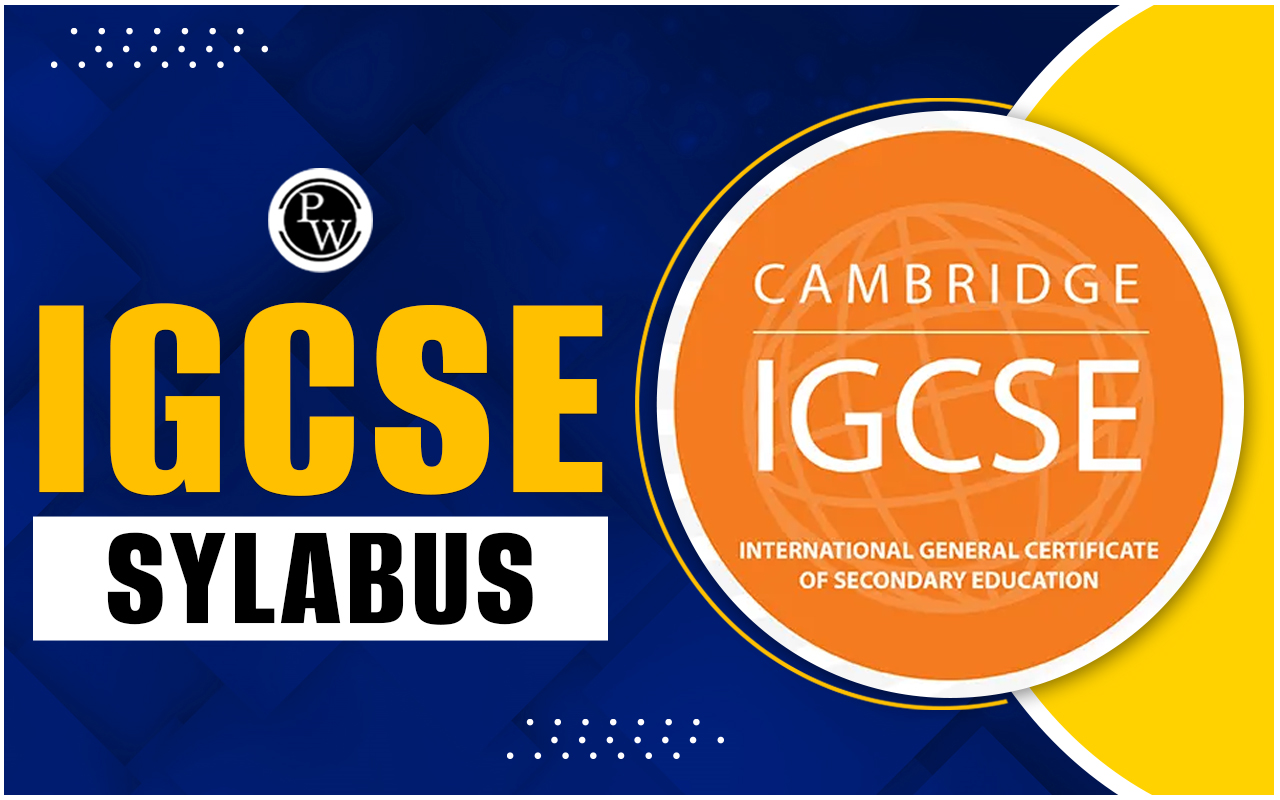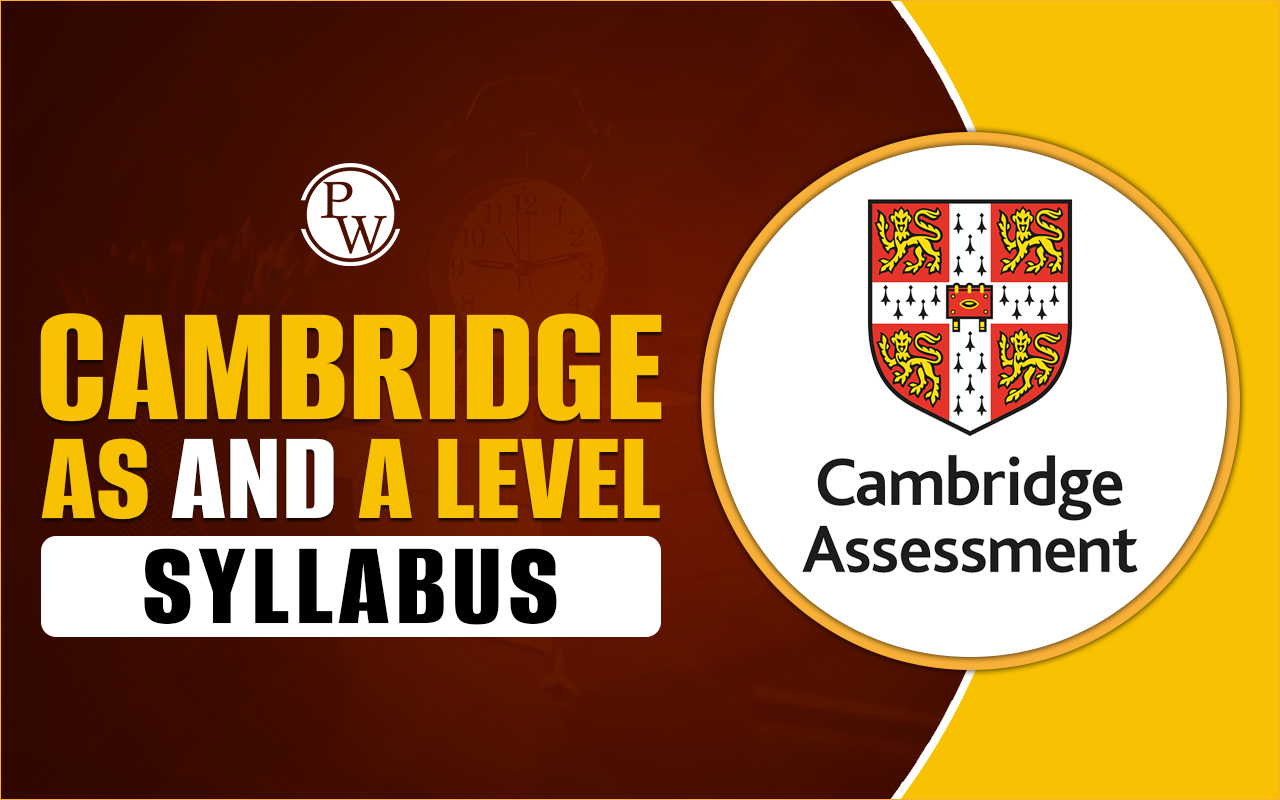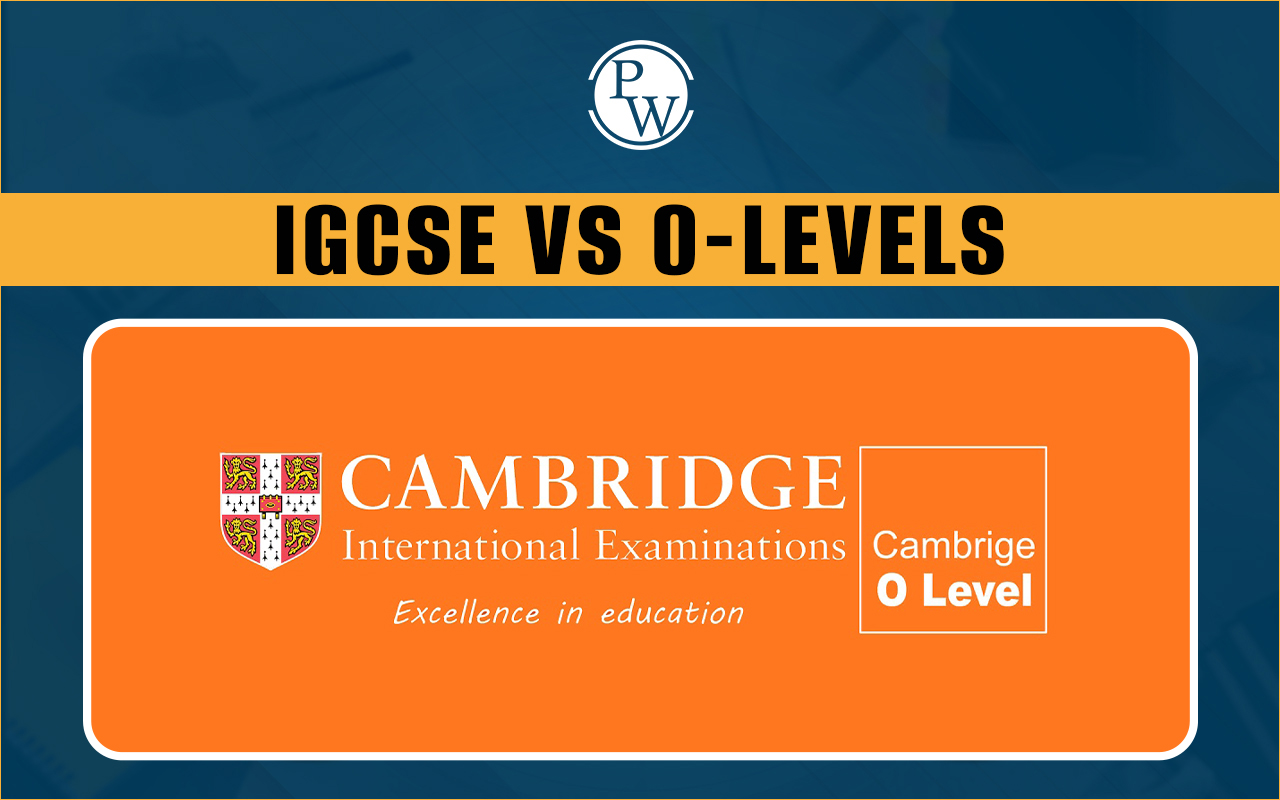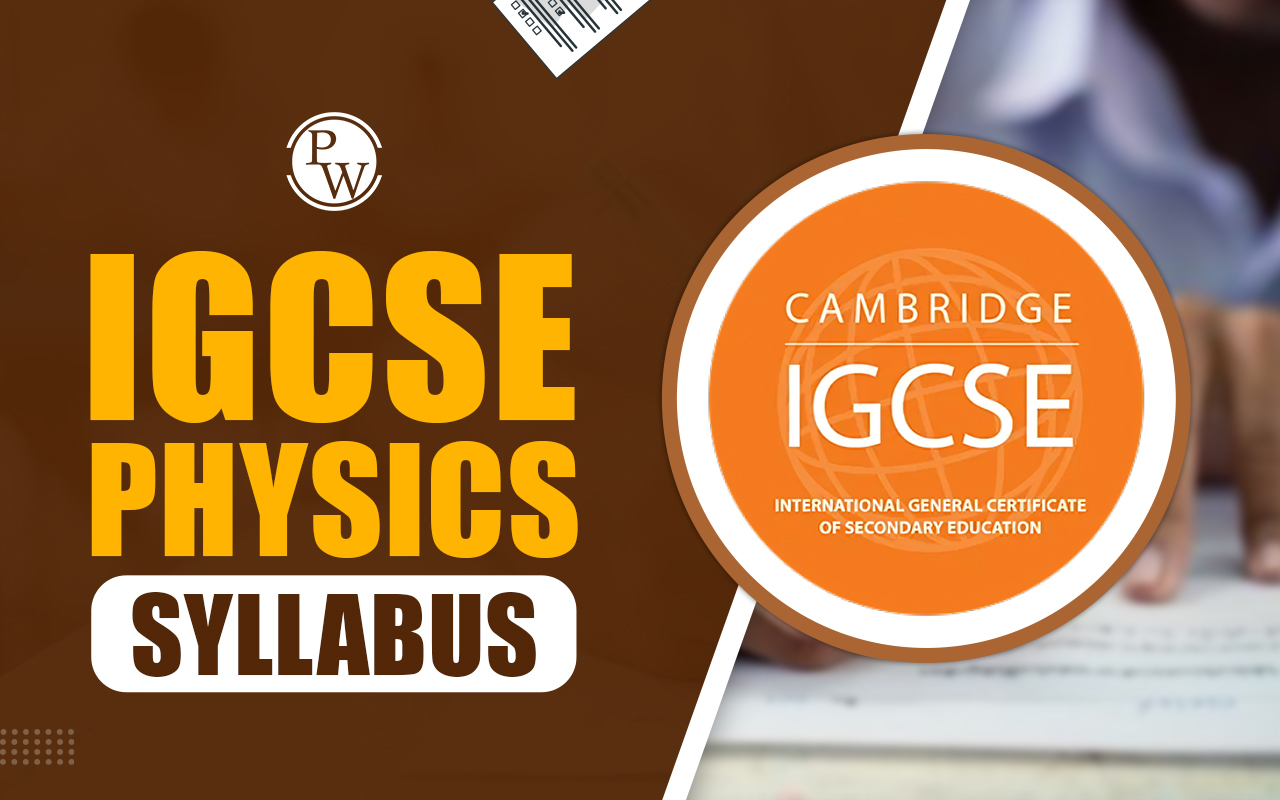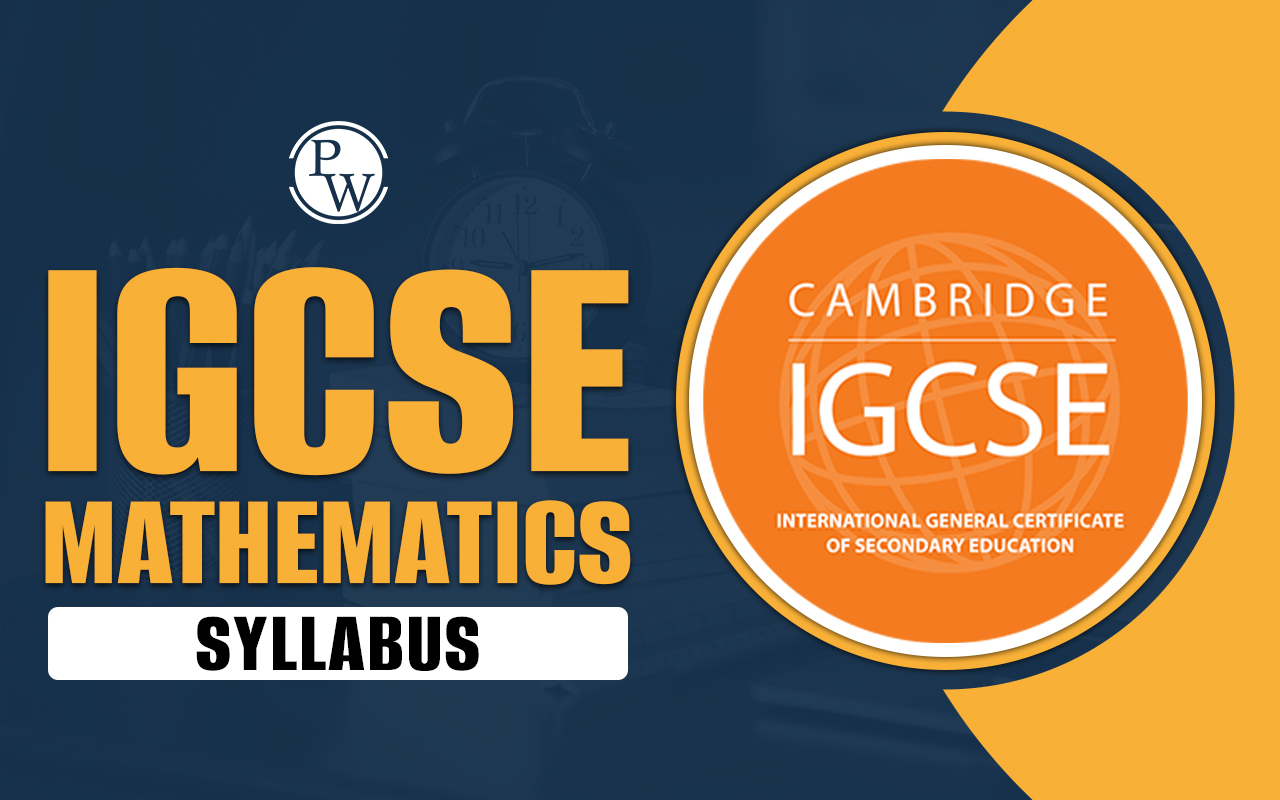
IGCSE Biology syllabus can feel overwhelming for students because of the wide range of content and details it covers. Many students struggle to keep up with all the information and often feel stressed, especially before exams. Understanding what needs to be learned and staying focused is key to handling the subject more easily, helping to reduce pressure during preparation.
In this article, we will discuss key aspects of the Cambridge IGCSE Biology (0610) Syllabus to help students preparing for their exams. We will also cover important details such as the Weighting for Assessment Objectives as a percentage of the overall qualification and how each component is weighed in the exams. You can also download the official IGCSE Biology syllabus PDF for more detailed information. This syllabus is applicable for exams in 2023 to 2025, with exam series in March, June, and November in India.IGCSE Biology Syllabus 2024 Overview
The IGCSE Biology syllabus covers essential concepts and practical skills, designed to develop students' understanding of biological processes. Detailed information is provided below for further guidance.|
IGCSE Biology Syllabus Overview |
|
| Topic Number | Topic Name |
| 1 | Characteristics and classification of living organisms |
| 2 | Organisation of the organism |
| 3 | Movement into and out of cells |
| 4 | Biological molecules |
| 5 | Enzymes |
| 6 | Plant Nutrition |
| 7 | Human nutrition |
| 8 | Transport in plants |
| 9 | Transport in animals |
| 10 | Diseases and immunity |
| 11 | Gas exchange in humans |
| 12 | Respiration |
| 13 | Excretion in humans |
| 14 | Coordination and response |
| 15 | Drugs |
| 16 | Reproduction |
| 17 | Inheritance |
| 18 | Variation and selection |
| 19 | Organisms and their environment |
| 20 | Human influences on ecosystems |
| 21 | Biotechnology and genetic modification |
Cambridge IGCSE Biology (0610) Syllabus PDF Download
The Cambridge IGCSE Biology (0610) syllabus offers a comprehensive guide for students to grasp essential biological concepts and develop scientific skills. It covers both theoretical and practical aspects, preparing students for exams and further studies. For a detailed look at the syllabus structure, assessment objectives, and learning outcomes, download the official PDF from the link provided below.
IGCSE Biology Assessment Highlights
The assessment includes multiple-choice questions, theory papers, and practical tests, focusing on knowledge, problem-solving, and experimental skills. The detailed assessment structure is explained below.|
IGCSE Biology Assessment Highlights |
||||||
| Assessment Type | Paper | Duration | Marks | Question Type | Weightage | Externally Assessed |
| Core Assessment | Paper 1: Multiple Choice (Core) | 45 minutes | 40 | Four-option multiple-choice questions | 30% | Yes |
| Paper 3: Theory (Core) | 1 hour 15 minutes | 80 | Short-answer and structured questions | 50% | Yes | |
| Extended Assessment | Paper 2: Multiple Choice (Extended) | 45 minutes | 40 | Four-option multiple-choice questions | 30% | Yes |
| Paper 4: Theory (Extended) | 1 hour 15 minutes | 80 | Short-answer and structured questions | 50% | Yes | |
| Practical Assessment | Paper 5: Practical Test | 1 hour 15 minutes | 40 | Based on experimental skills in Section 4 | 20% | Yes |
| Paper 6: Alternative to Practical | 1 hour | 40 | Based on experimental skills in Section 4 | 20% | Yes | |
Weighting for Assessment Objectives (as a percentage of the qualification)
The IGCSE Biology syllabus includes specific weightings for different objectives. Detailed information on how these are divided can be found below.| Weighting for Assessment Objectives as a percentage of the qualification) | |
|---|---|
| Assessment Objective | Weighting in IGCSE % |
| AO1 Knowledge with understanding | 50% |
| AO2 Handling information and problem-solving | 30% |
| AO3 Experimental skills and investigations | 20% |
| Total | 100% |
Weighting for Assessment Objectives (as a percentage of each component)
Each assessment component has different weightings, including specific percentages for papers. Detailed information on the component-wise breakdown is outlined below.| Weighting for Assessment Objectives (as a percentage of each component) | |||
|---|---|---|---|
| Assessment Objective | Papers 1 and 2 | Papers 3 and 4 | Papers 5 and 6 |
| AO1 Knowledge with understanding | 63% | 63% | – |
| AO2 Handling information and problem-solving | 37% | 37% | – |
| AO3 Experimental skills and investigations | – | – | 100% |
| Total | 100% | 100% | 100% |
How to Choose Cambridge IGCSE Subjects
Tips to Study IGCSE Biology Syllabus 2024
Here are some preparation tips to cover and study the IGCSE Biology Syllabus: Follow the Syllabus Thoroughly - The IGCSE syllabus outlines everything you need to know for the exam. Print it out and use it as a checklist while studying. Each chapter is broken down into key points, ensuring you don’t miss anything. Relying solely on textbooks can overwhelm you with extra or irrelevant information, so always refer to the IGCSE syllabus first. Efficient Study Methods Over Memorization - Memorizing everything is neither efficient nor effective for biology. Instead, use methods that help you actively engage with the content, like testing yourself through active recall. Read a section of your notes, then try to write down what you remember. This helps strengthen your understanding and highlights areas where you need improvement. Reviewing Concepts Immediately After Class - It’s essential to review what you’ve learned in class right after getting home. This habit strengthens your learning while the material is still fresh in your mind, making it easier to retain the information. Skipping this step can lead to confusion later on when revisiting the topic. Use Multiple Learning Resources - While your syllabus is the primary guide, using additional resources can enhance your understanding. School notes, online study materials, and videos can make challenging concepts easier. For topics with processes or diagrams, watching animations or browsing images can make the learning process more engaging and effective. Consistent Past Paper Practice - One of the most important strategies for success is solving past papers. This helps you get familiar with the exam structure, common question types, and how to word your answers correctly. Keep track of your progress, monitor your scores, and identify which areas need improvement. Practicing regularly will also help improve your time management skills during the exam. Keep a Past Paper Tracker - Stay organized by keeping a past paper tracker. Note down which papers you've completed and your scores. This helps track progress and identify areas for improvement. The more past papers you solve, the better your marks will become over time. Master Definitions and Diagrams - Definitions in your syllabus, often written in italics, are important for scoring well. You will likely get at least one or more definition-based questions in the exam. Also, mastering key diagrams is essential. You will be asked to label diagrams and answer questions about labelled parts. Understanding how to accurately draw and label these will help you gain valuable marks. Use of Active Recall Techniques - Active recall is a powerful learning tool. Use techniques like flashcards for definitions or the blurting method, where you read a section of the textbook, close it and write down everything you remember. Then, cross-check your answers to see what you've missed. This method helps reinforce your understanding and highlights weak areas. Focus on Process-Based Questions - Certain questions focus on processes like respiration or photosynthesis. When you encounter such questions in past papers, it's best to learn the exact steps from the marking scheme rather than relying on your textbook. The marking scheme ensures your answers are formatted correctly for the exam. Keep a Mistakes Log - Track your mistakes after each past paper. Write down the specific errors and review them before your next practice. By keeping a mistakes log, you ensure that you won’t repeat the same errors and can focus on improving weak areas. Start Solving Past Papers Early - Starting IGCSE past year papers early gives you more time to improve. Don’t wait until the last minute. Solving papers earlier helps identify weak spots and gives you enough time to improve through regular practice.| International Boards Other Related Topics | |
| IGCSE Chemistry Syllabus | IGCSE vs ICSE |
IGCSE Biology Syllabus FAQs
1. What is the structure of the IGCSE Biology syllabus?
The IGCSE Biology syllabus is divided into multiple sections that cover a wide range of biological concepts. The syllabus is designed to develop students' knowledge and practical skills through both theoretical and practical assessments.
2. What are the assessment objectives in IGCSE Biology?
The assessment objectives (AOs) are divided into three categories - AO1 Knowledge with understanding (50%), AO2 Handling information and problem-solving (30%), and AO3 Experimental skills and investigations (20%). These objectives are weighted differently depending on the exam papers.
3. What papers do students take in IGCSE Biology?
Students take different papers based on the Core or Extended curriculum. Core students take Paper 1 (Multiple Choice) and Paper 3 (Theory), while Extended students take Paper 2 (Multiple Choice) and Paper 4 (Theory). Both groups also complete a practical assessment through Paper 5 (Practical Test) or Paper 6 (Alternative to Practical).
4. What is the difference between Core and Extended content in IGCSE Biology?
The Core syllabus covers the basic concepts and provides a foundation, while the Extended syllabus goes into more depth. Core students can achieve grades C to G, whereas Extended students can achieve grades A* to E.
5. Where can I download the official IGCSE Biology syllabus?
You can download the official Cambridge IGCSE Biology (0610) syllabus PDF from the Cambridge International website or you can download it from official website of PW.
🔥 Trending Blogs
Talk to a counsellorHave doubts? Our support team will be happy to assist you!

Check out these Related Articles
Free Learning Resources
PW Books
Notes (Class 10-12)
PW Study Materials
Notes (Class 6-9)
Ncert Solutions
Govt Exams
Class 6th to 12th Online Courses
Govt Job Exams Courses
UPSC Coaching
Defence Exam Coaching
Gate Exam Coaching
Other Exams
Know about Physics Wallah
Physics Wallah is an Indian edtech platform that provides accessible & comprehensive learning experiences to students from Class 6th to postgraduate level. We also provide extensive NCERT solutions, sample paper, NEET, JEE Mains, BITSAT previous year papers & more such resources to students. Physics Wallah also caters to over 3.5 million registered students and over 78 lakh+ Youtube subscribers with 4.8 rating on its app.
We Stand Out because
We provide students with intensive courses with India’s qualified & experienced faculties & mentors. PW strives to make the learning experience comprehensive and accessible for students of all sections of society. We believe in empowering every single student who couldn't dream of a good career in engineering and medical field earlier.
Our Key Focus Areas
Physics Wallah's main focus is to make the learning experience as economical as possible for all students. With our affordable courses like Lakshya, Udaan and Arjuna and many others, we have been able to provide a platform for lakhs of aspirants. From providing Chemistry, Maths, Physics formula to giving e-books of eminent authors like RD Sharma, RS Aggarwal and Lakhmir Singh, PW focuses on every single student's need for preparation.
What Makes Us Different
Physics Wallah strives to develop a comprehensive pedagogical structure for students, where they get a state-of-the-art learning experience with study material and resources. Apart from catering students preparing for JEE Mains and NEET, PW also provides study material for each state board like Uttar Pradesh, Bihar, and others
Copyright © 2026 Physicswallah Limited All rights reserved.
